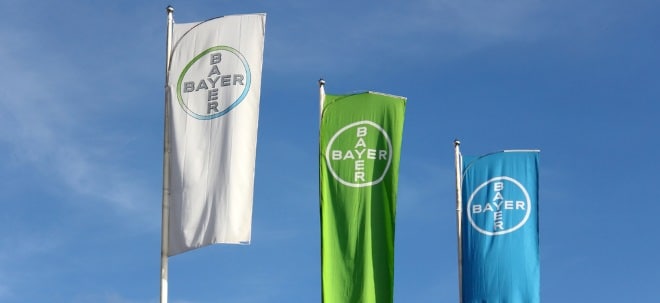http://www.nytimes.com/2007/12/06/business/...ef=business&oref=slogin
As the subprime loan crisis deepens, Wall Street firms are increasingly coming under scrutiny for their role in selling risky mortgage-related securities to investors.Many of the home loans tied to these investments quickly defaulted, resulting in billions of dollars of losses for investors. At the same time, many of the companies that sold these securities, concerned about a looming meltdown in the housing market, protected themselves from losses.
One big bank that saw the trouble coming, Goldman Sachs, began reducing its inventory of mortgages and mortgage securities late last year. Even so, Goldman went on to package and sell more than $6 billion of new securities backed by subprime mortgages during the first nine months of this year.
Of the loans backing the Goldman deals for which data is available, nearly 15 percent are already delinquent by more than 60 days, are in foreclosure or have resulted in the repossession of a home, according to data compiled by Bloomberg. The average default rate for subprime loans packaged in 2007 is 11 percent.
“There is a maxim that comes to mind: ‘If you work in the kitchen, you don’t eat the food,’” said Josh Rosner, a managing director of Graham Fisher, an independent consulting firm in New York.
The New York attorney general, Andrew M. Cuomo, has subpoenaed major Wall Street banks, including Deutsche Bank, Merrill Lynch and Morgan Stanley, seeking information about the packaging and selling of subprime mortgages. And the Securities and Exchange Commission is examining how Wall Street companies valued their own holdings of these complex investments. The Wall Street banks that foresaw problems say they hedged their mortgage positions as part of their fiduciary duty to shareholders. Indeed, some other companies, particularly Citigroup, Merrill Lynch and UBS, apparently did not foresee the housing market collapse and lost billions of dollars, leading to forced resignations of their chief executives.
In any case, the bankers argue, buyers of such securities — institutional investors like pension funds, banks and hedge funds — are sophisticated and understand the risks.Nevertheless, the loans that many banks packaged are proving to be increasingly toxic. Almost a quarter of the subprime loans that were transformed into securities by Deutsche Bank, Barclays and Morgan Stanley last year are already in default, according to Bloomberg. About a fifth of the loans backing securities underwritten by Merrill Lynch are in trouble......As early as January 2006, Greg Lippmann, Deutsche Bank’s global head of trading for asset-backed securities and collateralized debt obligations, and his team began advising hedge funds and other institutional investors to protect themselves from a coming decline in the housing market.Mr. Lippmann’s trade ideas — documented in a January 2006 presentation obtained by The New York Times — were not always popular inside Deutsche Bank, where the origination desk was busy selling mortgage securities.Last year, Deutsche Bank underwrote $28.6 billion of subprime mortgage securities, according to Inside Mortgage Finance, an industry publication. In the first nine months of this year, the bank underwrote $12 billion
Goldman Sachs also moved early to insulate itself from potential losses. Almost a year ago, on Dec. 14, 2006, David A. Viniar, Goldman’s chief financial officer, called a “mortgage risk” meeting. The investment bank’s mortgage desk was losing money, and Mr. Viniar, with various officials, reviewed every position in the bank’s portfolio.The bank decided to reduce its stockpile of mortgages and mortgage-related securities and to buy expensive insurance as protection against further losses, said a person briefed on the meeting who was not authorized to speak about the situation publicly.
Goldman, however, did not stop selling subprime mortgage securities.
Like Goldman, Lehman Brothers also started to hedge its huge inventory of home loans in the second quarter of this year, concerned about poor underwriting standards. But Lehman also continued to sell mortgage securities packed with shaky loans, underwriting $16.5 billion of new securities in the first nine months of 2007. About 15 percent of the loans backing these securities have defaulted.By buying and packaging mortgages, Wall Street enabled the lenders to extend credit even as the dangers grew in the housing market.
“There was fierce competition for these loans,” said Ronald F. Greenspan, a senior managing director at FTI Consulting, which has worked on the bankruptcies of many mortgage lenders. “They were a major source of revenues and perceived profits for both the originators and investment banks.” ...Lehman Brothers, the dominant Wall Street player in this field, underwrote $51.8 billion of subprime mortgage securities in 2006, followed by RBS Greenwich Capital, which arranged $47.6 billion of sales.Not all banks continued to expand their subprime business. Credit Suisse, which had been a major player in 2005, pulled back aggressively, with its underwriting down 22 percent in 2006, compared with 2004.
Morgan Stanley, which expanded its subprime underwriting business by 25 percent from 2004 to 2006, cultivated a relationship with New Century Financial, one of the largest subprime lenders. The firm agreed to pay above-market prices for loans in return for a steady supply of mortgages, according to a former New Century executive...Loans made by New Century, which filed for bankruptcy protection in March, have some of the highest default rates in the industry — almost twice those of competitors like Wells Fargo and Ameriquest, according to data from Moody’s Investors Service.
Fremont General and ResMae, which also had high default rates, were big suppliers of loans to Deutsche Bank. Merrill Lynch had a close relationship with Ownit Mortgage Solutions, which filed for bankruptcy in December. Merrill also acquired another lender, First Franklin, for $1.7 billion in late 2006....What is clear is that home loans were highly lucrative to Wall Street and its bankers. |


 Thread abonnieren
Thread abonnieren



